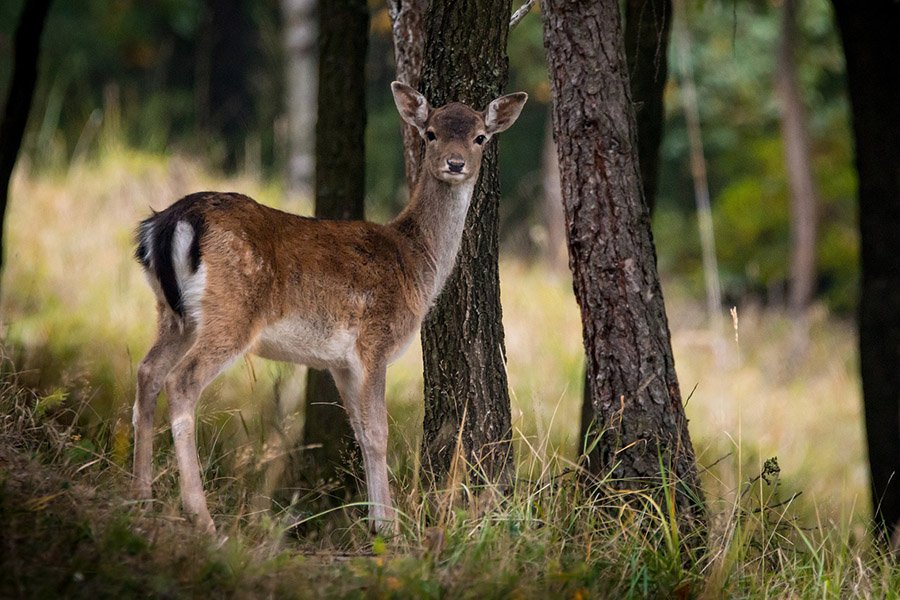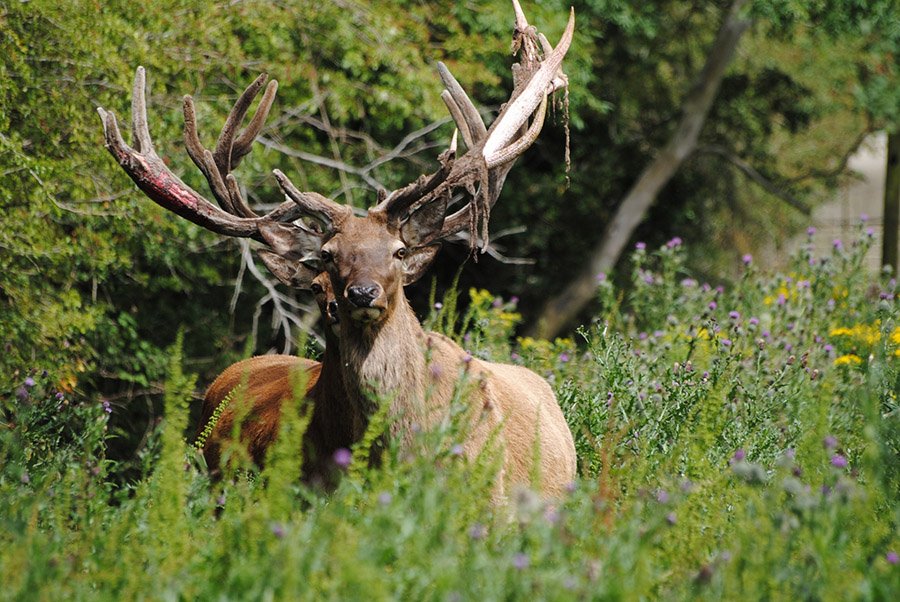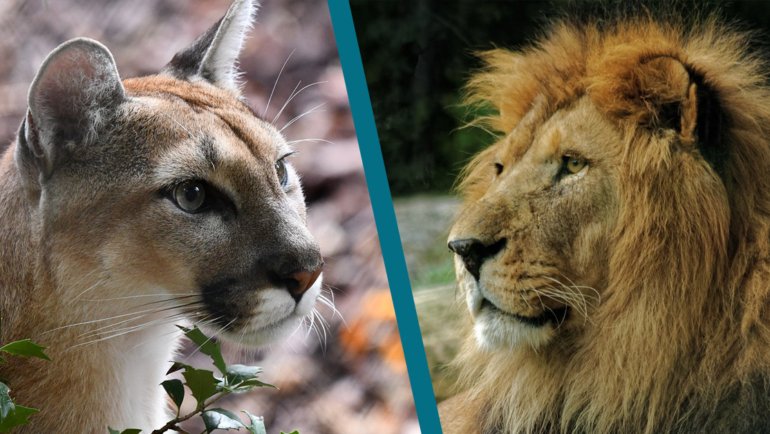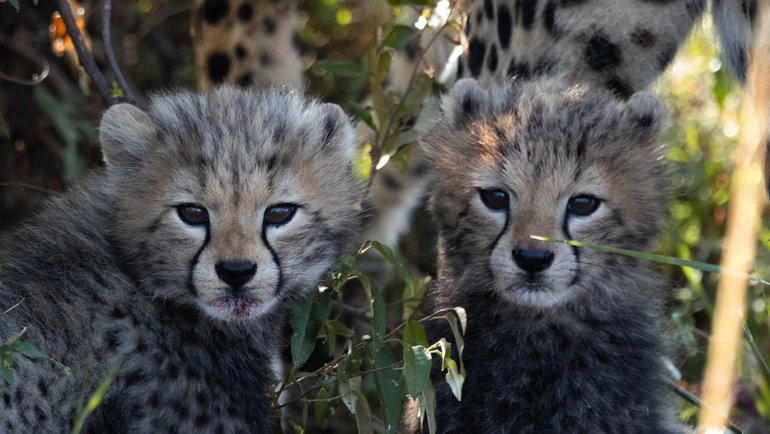We know that most domesticated animals exhibit emotions that reveal their feelings. For instance, when you get home from work, your pet dog leaps in joy upon seeing you or portrays various signs/behaviors to show that it’s hurt or in pain.
However, most wild creatures, such as deer, may act in a way that doesn’t exhibit their emotions to ensure survival. Unfortunately, this defensive mechanism makes some people wonder whether deer feel pain.
Therefore, this article contains vital information that will address this query and enable you to understand why it’s vital to be conscious and mindful of deer feelings and well-being.
What Makes Deer Feel Pain?
Deer, like all mammals, have a complex nervous system that allows them to feel pain. Pain is typically detected by specialized nerve cells called nociceptors found throughout the body, including in the skin, muscles, and internal organs.
These nociceptors are activated by various stimuli, such as physical injury, inflammation, or chemical irritants, and send signals to the brain indicating the presence of pain.
Once activated, nociceptors release neurotransmitters that transmit pain signals to the spinal cord and then to the brain, where they are processed and interpreted as pain.
The brain then sends signals that can cause the deer to withdraw from the source of pain or take other protective measures to avoid further injury.
In addition to the nervous system, pain can also be influenced by factors such as stress, anxiety, and previous experiences with pain. These factors can affect how the deer perceives and responds to pain and may contribute to variations in pain sensitivity between individuals.
Also read: Are Deer Nocturnal? When Are Deer Most Active?

Do Deer Feel Pain Like Humans?
Although deer can feel the pain, they can highly suppress or minimize this feeling better than humans. It is because deer have a lower density of pain receptors in their skin compared to humans, which helps them reduce the intensity of pain they experience.
According to biologists, the animals’ comparatively high blood levels of beta-endorphins (natural painkillers) enable them to suppress pain impulses. For instance, the pain-relieving beta-endorphins in white-tailed deer are ten times higher than in humans.
Do Deer Feel Pain When Shot?
Yes, deer can feel pain when shot. When a deer is shot, the bullet or arrow can cause physical trauma and damage to the deer’s organs, muscles, and bones, resulting in pain.
It is important to note that the level of pain a deer experiences when it is shot can vary depending on various factors, such as the location of the shot, the type of ammunition used, and the deer’s physical condition.
In some cases, a well-aimed shot can quickly and humanely kill the deer, minimizing the pain it experiences. However, in other cases, a poorly placed shot can result in a slow and painful death for the deer.
Therefore, as an ethical hunter, it is crucial to ensure that you hunt/kill deer quickly and humanely. It typically involves using appropriate equipment, aiming for vital organs, and practicing good marksmanship.
These measures help minimize the pain and suffering the deer experience. It also explains why hunting these mammals using bow and arrow is banned in some countries or considered animal cruelty; it frequently leads to prolonged suffering when they are not killed quickly and effectively.
While some still support hunting, observing and preserving wildlife is a more ethical and compassionate way to interact with the natural world.
Also read: Why You Should Never Touch a Baby Deer (& What Happens if You Do)

Do Deer Feel Pain When Hit By a Car?
Yes, deer feel pain when hit by a car. Like other animals, deer have a nervous system that allows them to experience pain.
When a deer is hit by a car, it can sustain serious injuries that cause pain and distress. In some cases, the injuries may be fatal.
However, it’s vital to remember that hitting a deer with a car can be dangerous for both the driver and the animal. Therefore, if you encounter a deer while driving, it’s best to slow down and try to avoid hitting it if possible.
Can Deer Feel Pain in Their Antlers?
Deer antlers are bony structures covered in a layer of skin called velvet, which supplies blood and nutrients to the growing antlers. While the antlers are growing, they are sensitive and may feel sore or tender, but once they have fully developed, they are essentially dead bone and do not have nerves or blood vessels.
So, it is unlikely that deer will feel pain in their antlers once fully developed, but they may feel some discomfort during the growth process.
Does it Hurt Deer to Shed Velvet?
Shedding velvet from their antlers does not cause pain to deer. Once the antlers have reached their full size, the velvet dries up and peels away.
At this point, the deer may rub its antlers against trees and other objects to help speed up the shedding process. While the shedding process can be uncomfortable for deer, it is not typically painful.

Can Deer Feel Pain in Their Hooves?
Deer, like other mammals, have nerves in their hooves that allow them to sense pressure, temperature, and pain. Therefore, it is likely that deer can feel pain in their hooves if they are significantly injured or diseased.
For example, a deer with a cracked or broken hoof may experience acute pain when walking, running, or jumping. Chronic conditions such as hoof rot or abscesses can cause continuous pain and discomfort.
Therefore, it’s essential for wildlife managers and veterinarians to monitor the health of deer populations and address any hoof-related issues promptly to minimize pain and suffering for these animals.
Final Thoughts
In addition to physical pain, deer may experience emotional pain or distress. For example, when a deer loses a member of its herd or a doe loses its fawn, it may experience grief and sadness.
Therefore, it’s essential for hunters and others who interact with deer to consider the impact of their actions on the animal’s well-being.
They must also take the necessary and recommended steps to minimize any pain or suffering they may cause to deer.




